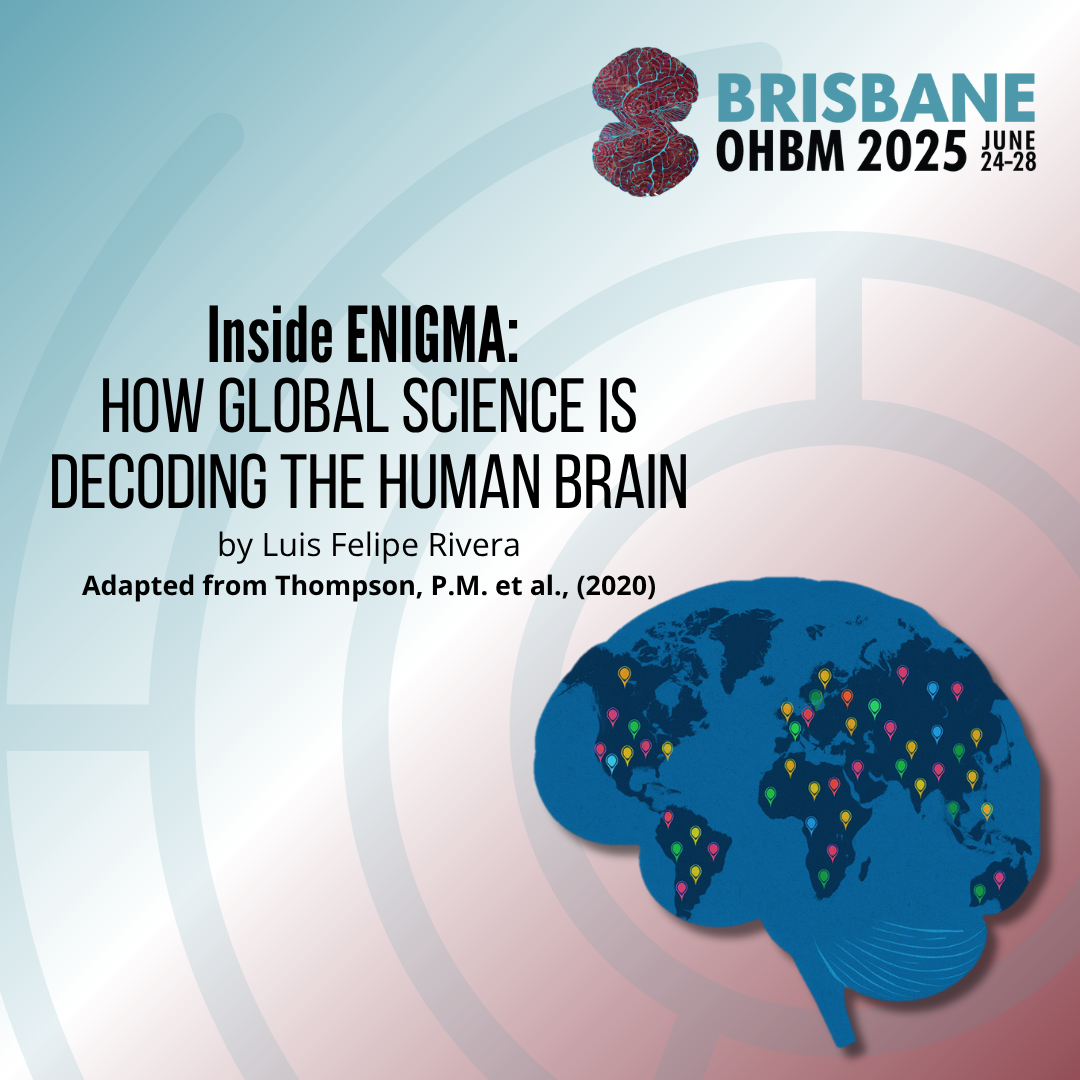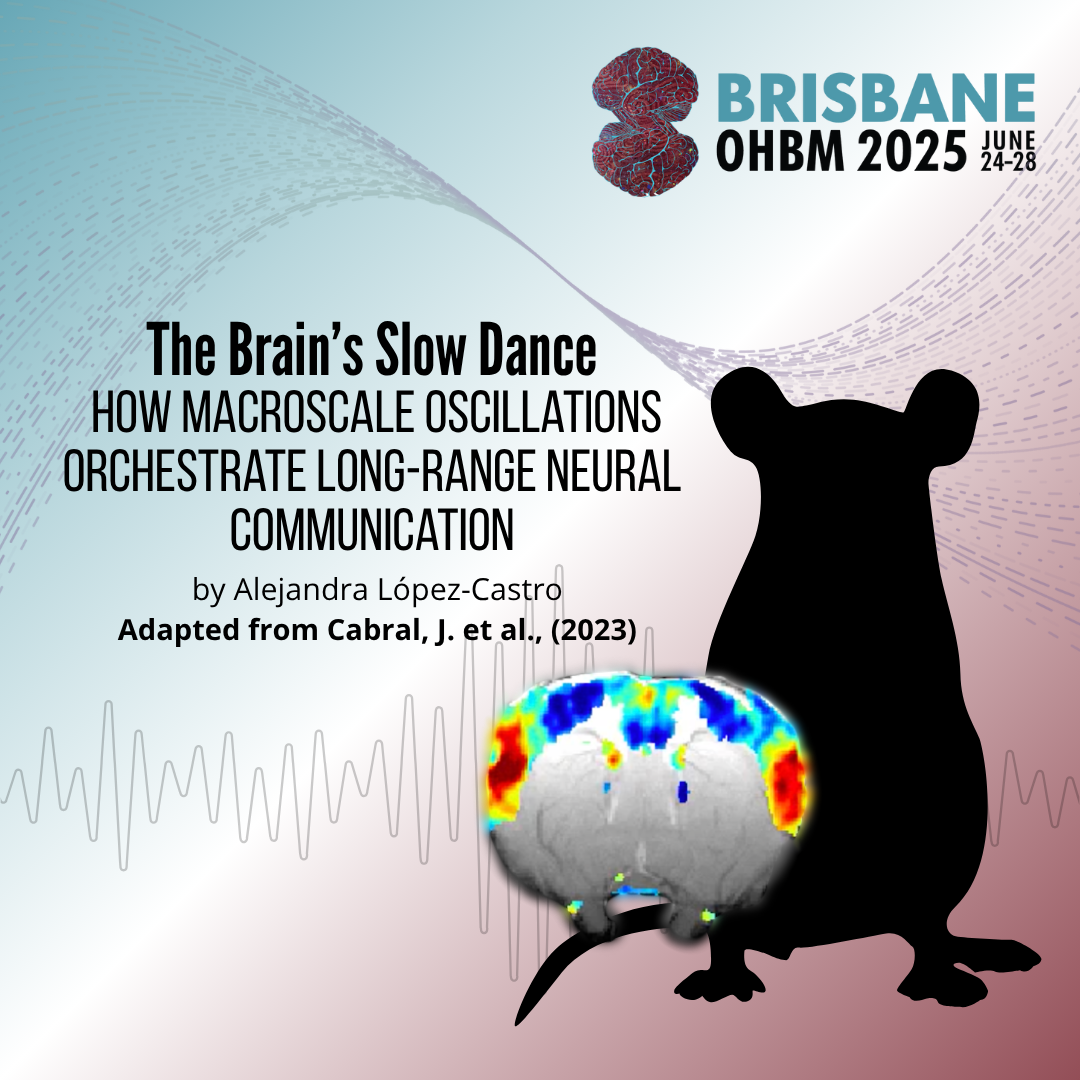
Keynote series Dr. Paul M. Thompson - Inside ENIGMA: How Global Science Is Decoding the Human Brain
The ENIGMA Consortium is a global neuroscience initiative launched in 2009 that unites over 2,000 scientists across 47 countries to investigate how genetic variation and brain structure relate to neuropsychiatric disorders. By analyzing more than 200,000 brain scans and millions of genetic variants using standardized protocols, ENIGMA has produced the largest MRI studies of conditions like schizophrenia, depression, and autism. Its distributed model allows local data control while enabling large-scale meta- and mega-analyses, revealing subtle genetic influences and setting new standards for reproducibility in neuroscience. Through collaboration, ENIGMA continues to uncover hidden patterns and expand the frontiers of brain research.

Keynote series Dr. Joana Cabral - The Brain’s Slow Dance: How Macroscale Oscillations Orchestrate Long-Range Neural Communication
A groundbreaking study led by Dr. Joana Cabral (University of Minho) reveals how slow, brain-wide oscillations—detected via ultrafast fMRI—coordinate long-range neural communication in female rats. These rhythmic waves (below 0.1 Hz) mirror human resting-state networks like the default mode system, suggesting a universal mechanism for cognition. By focusing on female subjects, the research highlights potential sex differences in brain dynamics while offering new clues about disorders like Alzheimer’s, where disrupted slow waves may play a key role. This work reshapes our understanding of how the brain’s "slow dance" synchronizes its vast networks—opening doors to future therapies.

Keynote series Dr. Anqi Qiu - How a Mother’s Happiness During Pregnancy Shapes Her Child’s Brain
Positive maternal mental health during pregnancy—marked by happiness, balance, and life satisfaction—is linked to larger hippocampal volumes and stronger brain connectivity in children, leading to better emotional and cognitive outcomes. This longitudinal study highlights the importance of nurturing psychological well-being as a crucial element of prenatal care.

Keynote series Dr. Melanie Boly - The Nature of Consciousness: A Clash of Paradigms in Integrated Information Theory
Dr. Melanie Boly's keynote explores the deep divide between two views of consciousness—formalist vs. biological—centered around Integrated Information Theory (IIT) 4.0. While IIT aims to quantify consciousness through a mathematical metric called Φ, Boly warns that it may mistake complex artificial systems for truly conscious beings. She emphasizes the need to distinguish genuine biological consciousness from pseudo-consciousness and argues that subjective experience might depend on mechanisms IIT cannot yet capture. Her talk invites reflection on whether consciousness is computable—or inherently tied to life itself.

Keynote series Dr. Adeel Razi — How does psilocybin rewire our brains?
This study examines the effects of psilocybin on brain connectivity using fMRI and EEG, revealing increased activity in regions tied to cognition, emotion, and imagination while reducing sensory processing, leading to a blended state of "embeddedness." Machine learning analysis linked structured brain activity to stronger psychological effects, with long-term changes in perception and acceptance of mortality observed a month later. Context was crucial, music enhanced emotional depth, while meditation had no significant impact. On a neural level, psilocybin altered brainwave patterns, promoting more flexible and creative processing, emphasizing the importance of environmental factors in shaping psychedelic experiences.

Keynote series Dr. Sharna Jamadar — Seeing the aging brain in a new light: “The power of fPET imaging”
Dr. Sharna Jamadar’s keynote sheds light on a promising new lens for understanding cognitive aging: the brain’s energy economy. Through her work with functional PET (fPET) imaging, Jamadar and colleagues demonstrate that changes in how brain regions coordinate energy use—known as metabolic connectivity—are strong predictors of cognitive decline.

Keynote Series: Dr. Luis Concha and his road to uncover the mysteries of temporal lobe epilepsy
Epilepsy, a condition affecting millions globally, presents a captivating and intricate puzzle for researchers and medical professionals alike. How does this neurological disorder, characterized by recurrent seizures, impact cognitive abilities and daily life?